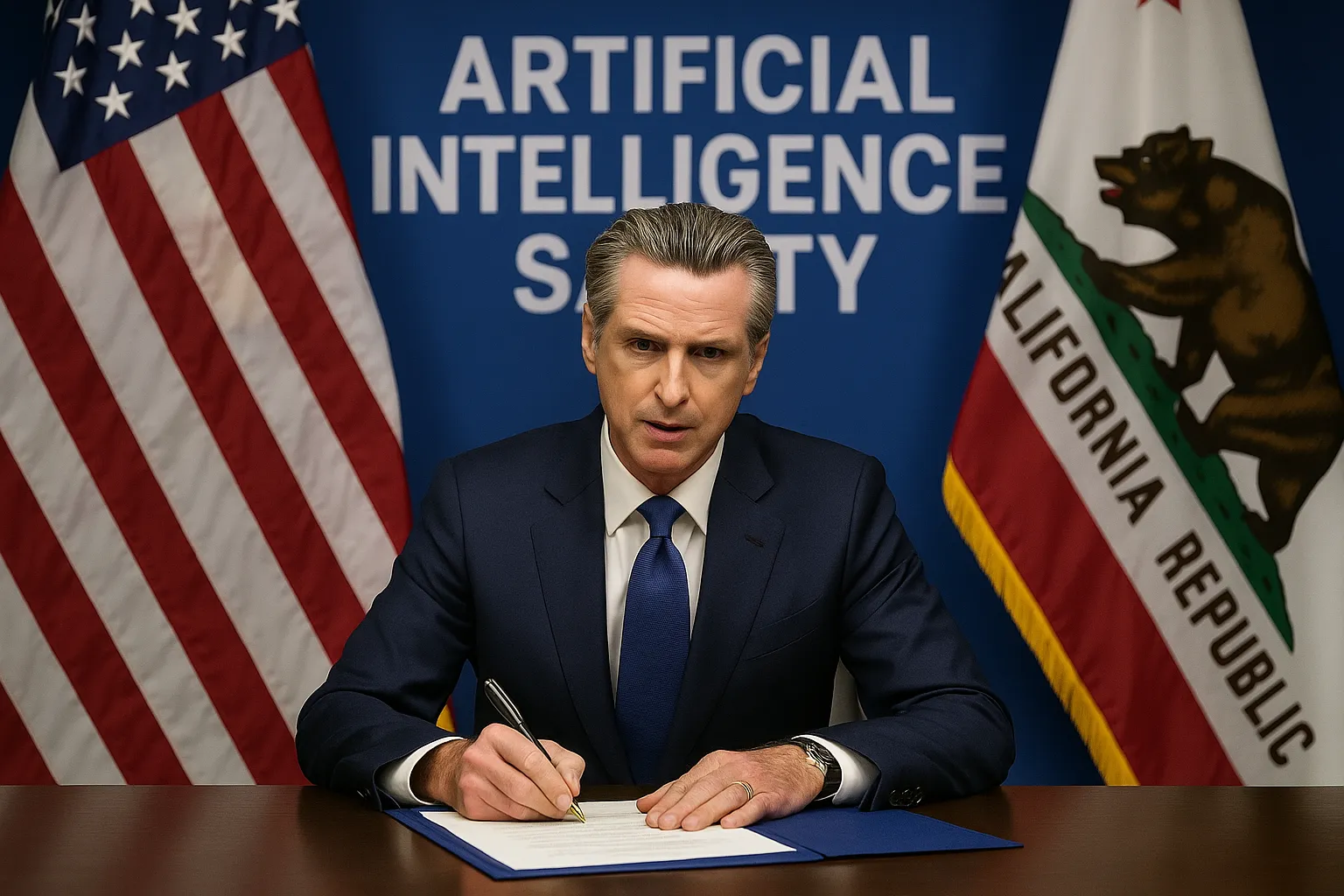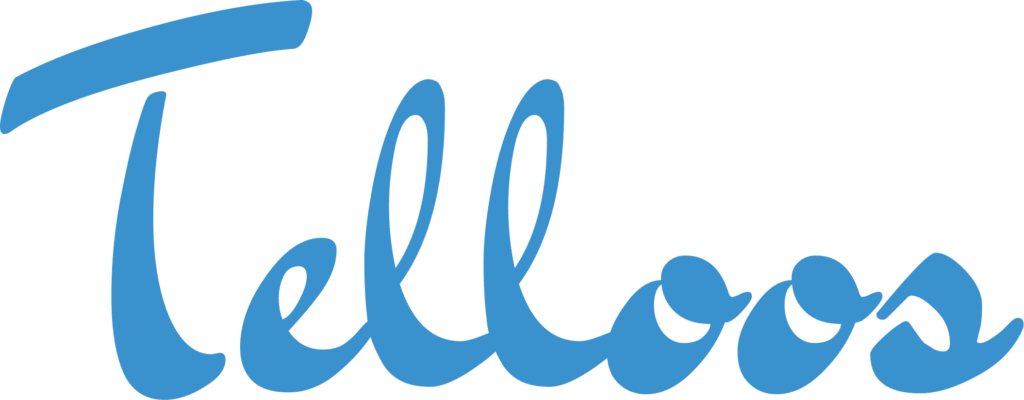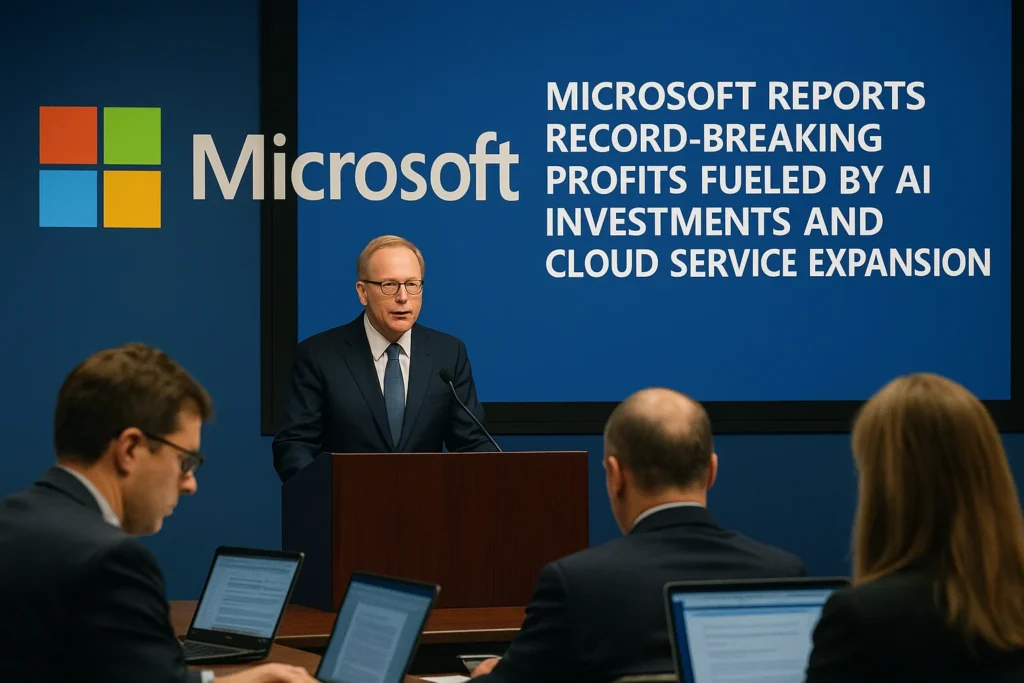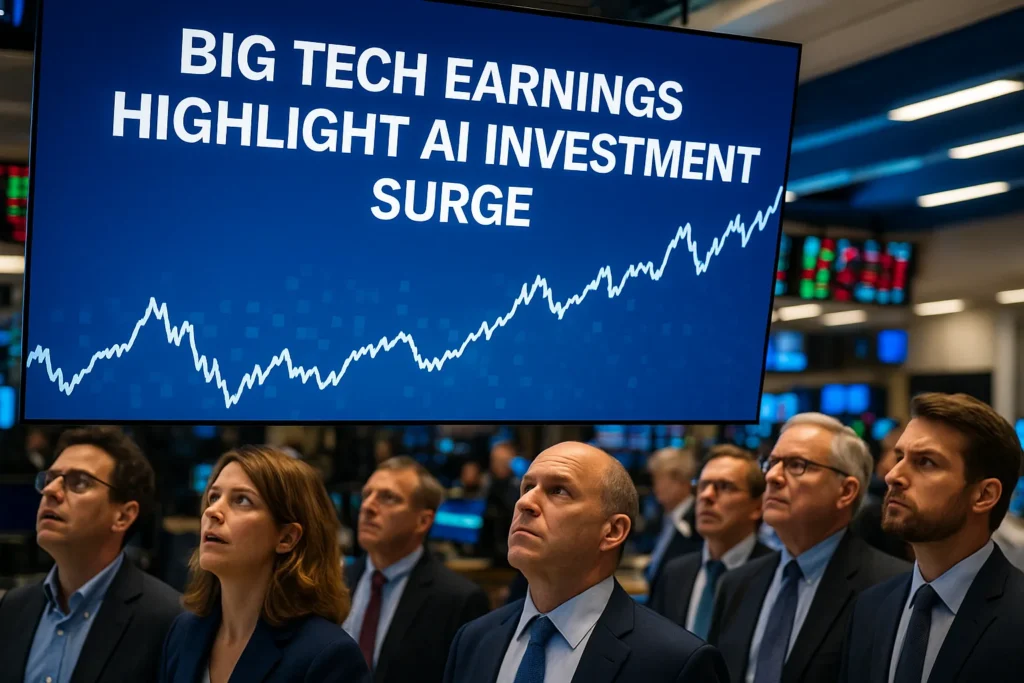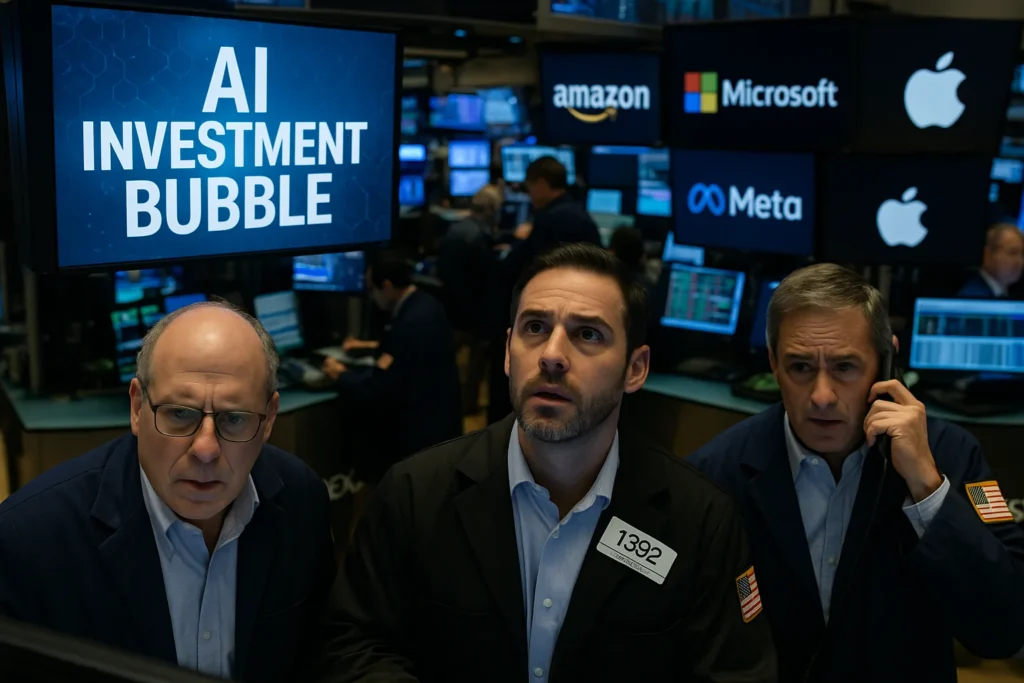California has made history with the passage of the first-in-nation AI safety law, signed by Governor Gavin Newsom. The law demands risk evaluations, transparency, and reporting requirements for companies deploying artificial intelligence in high-risk contexts. Proponents call it a bold move to protect society from reckless innovation. But should we really celebrate government regulators as the new gatekeepers of AI? Or is this law just political theater designed to project California’s dominance over the future of technology?
Context: the official narrative
Mainstream outlets like Politico hailed the AI safety law as a landmark achievement. The legislation compels AI developers to assess their systems’ risks and file reports with state regulators. Its intent is clear: prevent misuse in areas such as healthcare, finance, and national security. Supporters argue that AI, left unchecked, could destabilize democratic institutions, manipulate markets, or even cause catastrophic accidents.
The framing is simple: we are on the edge of a technological revolution, and only government oversight can keep chaos at bay. California, as the birthplace of Silicon Valley, positions itself as the natural pioneer in setting national—and perhaps global—standards.
Oppositional Argument: the cracks in the story
Here’s where I disagree. The AI safety law may look like a victory for accountability, but it reeks of premature triumphalism. Regulation is not inherently bad, but this law hands disproportionate power to bureaucrats who barely understand the systems they’re regulating. Instead of protecting citizens, it risks consolidating control in the hands of politicians eager to score headlines about “taming AI.”
Let’s not forget: the same state government failed to regulate social media monopolies, failed to address massive data breaches, and still struggles to secure its own IT infrastructure. And now, suddenly, Sacramento claims the authority to dictate the future of machine intelligence? That’s not progress—it’s hubris.
Analytical Breakdown: causes and consequences
Why did this happen now? Three factors collide:
- Political opportunism: Newsom, rumored to harbor national ambitions, wants to brand himself as the governor who “saved America from AI.” Passing the first AI safety law fits perfectly into that narrative.
- Public fear: Hollywood strikes, media panic about ChatGPT replacing jobs, and sci-fi doomsday scenarios have made AI regulation an easy sell. Fear is a political currency.
- Corporate positioning: Ironically, the biggest tech firms may benefit. Google, OpenAI, and Meta can afford compliance costs. Smaller startups cannot. The result? Fewer competitors, deeper monopolies.
The consequences will be stark: Silicon Valley giants gain an edge while innovation gets throttled. Once again, regulation masquerades as protection but functions as corporate armor.
Human Perspective: what it means for people
For ordinary people, the AI safety law could feel like a double-edged sword. On one hand, Californians want guardrails: no one wants an AI misdiagnosing patients in hospitals or manipulating elections. On the other hand, if compliance costs force small innovators out of the market, we’ll be left with fewer choices, higher prices, and systems built by corporations already notorious for exploiting user data.
Take healthcare AI. A startup trying to build diagnostic tools for rural clinics may now need expensive legal teams to file reports. Meanwhile, Google Health can swallow the cost effortlessly. The supposed “safety law” risks turning into a moat around the tech oligopoly.
Counterarguments
Defenders argue that without regulation, AI could spiral out of control. They cite warnings from figures like Geoffrey Hinton and Sam Altman about existential risks. But let’s be honest: many of these warnings come from insiders who stand to gain from shaping the rules. They cry apocalypse, then sit at the regulatory table ensuring policies entrench their dominance. That’s not altruism—it’s strategy.
Conclusion: my judgment
California’s AI safety law is not the triumph it’s painted to be. It’s a calculated gamble by Newsom: a chance to pose as the responsible sheriff of Silicon Valley while quietly strengthening the same corporations that sparked the panic. Yes, society needs accountability. But rushed, headline-driven laws are the worst way to get it.
If America wants genuine AI safety, it needs independent oversight, technical expertise, and global cooperation—not grandstanding from Sacramento. Otherwise, we risk repeating history: regulation written by the powerful, for the powerful, under the guise of protecting the people.
External Links
97 views
